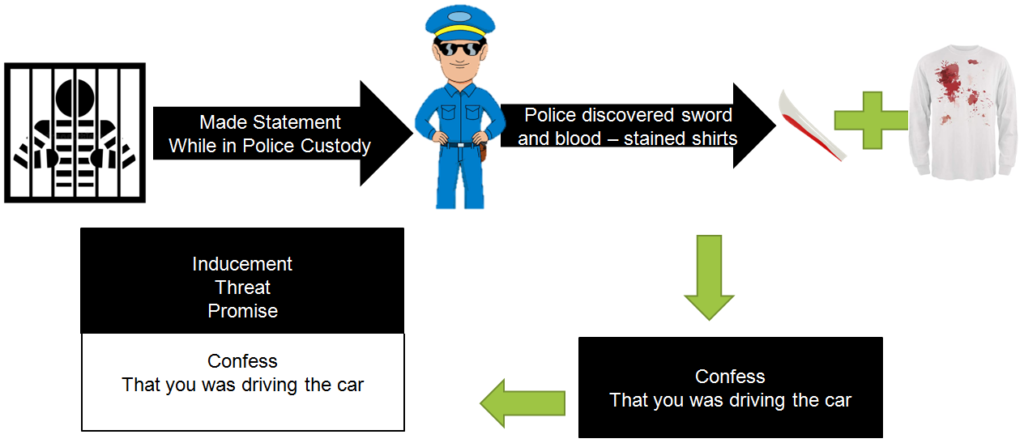Section -27
How much of information received from accused may be proved

- Provided that when any fact is deposed to as discovered in consequences of information received from a person accused of any offence, in the custody of a police officer, so much of such information, whether if amounts to a confessions or not, as relates distinctly to the fact thereby discovered, may be proved.
Scope
- There are two exceptions laid down in the Evidence Act so far, the admissibility of confession made by an accused is concerned.
- First, exception relates to when confession is made by the accused in immediate presence of a magistrate (Section 26) and
- The other has been mentioned in Section 27 i.e. when the confession leads to discoveries of facts. The section permits the proof of all kinds of information whether contained in a confession or not, and therefore goes beyond the provisions of Sections 25 and 26.
- Section 27 lays down that during the period of investigation or during police custody any information is given by the accused of an offence to the police officer that leads to discover any fact, may be proved whether such information amounts to confession or not, and obtained under inducement, threat or promise.
- Section 27 is by way of a proviso to Sections 25 and 26 and a statement even by way of confession made in police custody which distinctly relates to the fact discovered is admissible in evidence against the accused.
- Under sections 24, 25 and 26 a confession which is inadmissible would be admissible under section 27 subject to discoveries of facts on the basis of information given by the accused.
- Example: ‘A’ was arrested by the police officer on a charge of murder. ‘A’ confessed to the police officer that he had committed murder with a dagger what he had hidden in the neighboring field. On the basis of such information the police officer recovered the sword from the field. The statement regarding hiding of dagger to the police officer is relevant.
- It arises by reason of fact that information given by the accused exhibited knowledge or mental awareness of information as to its existence at particular place. Fact discovered, therefore, has to be a combination of both the elements, that is, physical object and mental condition.
- Essential requirements of the section: The following conditions are necessary for the application of the Section 27.
- The fact must have been discovered in consequence of information received from the accused.
- The person giving information must be accused of an offence.
- He must be in custody of a police officer.
- That portion only of the information which relates distinctly to the fact discovered can be proved.”
- The discovery of fact must relate to the commission of crime in question.
- Before the statements proved somebody must depose that some article was discovered in consequence of the information received from the accused.
Constitutional validity of Section 27:
- In State of U.P. v Deoman the validity of Section 27 of the Evidence Act was challenged on the ground that it was offending Article 14 of the Constitution of India. In appeal the High Court declared Section 27 to be unconstitutional as it created unjustifiable discrimination between “persons in custody” and “persons out of custody.” Further appeal was made by the State of U.P. against the judgment of the High Court in the Supreme Court.
- It was held by the Supreme Court that the distinction between “persons in custody” and “persons out of custody” had little practical significance. By majority decision the Section 27 was declared to be constitutional and the conviction awarded by the Session judge was restored.
- The basic idea embedded in Section 27 of the Evidence Act is the doctrine of confirmation by subsequent event because every part of the statement, made at the instance of the accused, in a police custody should necessarily be confirmed by the subsequent events of discovery, to make it admissible in court.
- In the recent judgement of Jafarudheen vs State Of Kerala on 22 April, 2022 , Supreme Court held any recovery under Section 27 will have to satisfy the Court’s conscience. One cannot lose sight of the fact that the prosecution may at times take advantage of the custody of the accused, by other means. The Court will have to be conscious of the witness’s credibility and the other evidence produced when dealing with a recovery under Section 27 of the Evidence Act.
The statement is a genus; admission is the species and confession is the sub-species –
Supreme Court in the Case of Sahoo v.State of UP (1965)









No comment